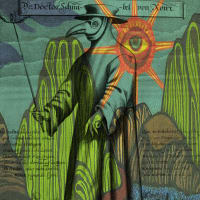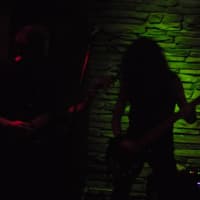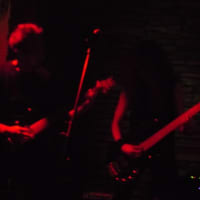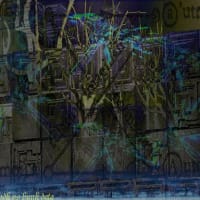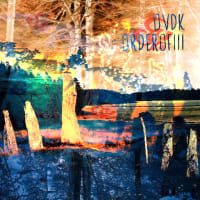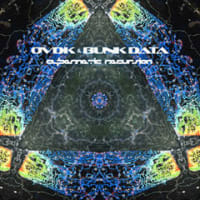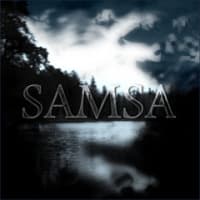
Лeв Давидович Трóцкий (), Lev Davidovich Trotsky, also transliterated Leo, Lyev, Trotskii, Trotski, Trotskij, Trockij and Trotzky) (November 7 [O.S. October 26] 1879 – August 21, 1940), born Lev Davidovich Bronstein (Лeв Давидович Бронштéйн), was a Ukrainian-born Bolshevik revolutionary and Marxist theorist. He was one of the leaders of the Russian October Revolution, second only to Lenin. During the early days of the Soviet Union, he served first as People's Commissar for Foreign Affairs and later as the founder and commander of the Red Army and the People's Commissar of War. He was also among the first members of the Politburo.
After leading the failed struggle of the Left Opposition against the policies and rise of Joseph Stalin in the 1920s and the increasing bureaucratization of the Soviet Union, Trotsky was expelled from the Communist Party and deported from the Soviet Union in the Great Purge. As the head of the Fourth International, he continued in exile to oppose the Stalinist bureaucracy in the Soviet Union, and was eventually assassinated in Mexico by Ramón Mercader, a Soviet agent.[1] Trotsky's ideas form the basis of Trotskyism, a major school of Marxist thought that is opposed to the theories and practices of Stalinism.
After the Bolsheviks came to power, Trotsky became the People's Commissar for Foreign Affairs and published the secret treaties previously signed by the Triple Entente that detailed plans for post-war reallocation of colonies and redrawing state borders.
Trotsky led the Soviet delegation during the peace negotiations in Brest-Litovsk from December 22, 1917 to February 10, 1918. At that time the Soviet government was split on the issue. Left Communists, led by Nikolai Bukharin, continued to believe that there could be no peace between a Soviet republic and a capitalist country and that only a revolutionary war leading to a pan-European Soviet republic would bring a durable peace. They cited the successes of the newly formed (January 15, 1918) voluntary Red Army against Polish forces of Gen. Józef Dowbor-Muśnicki in Belarus, White forces in the Don region, and newly independent Ukrainian forces as proof that the Red Army could repel German forces, especially if propaganda and asymmetrical warfare were used. They did not mind holding talks with the Germans as a means of exposing German imperial ambitions (territorial gains, reparations, etc) in hopes of accelerating the hoped-for Soviet revolution in the West, but they were dead set against signing any peace treaty. In case of a German ultimatum, they advocated proclaiming a revolutionary war against Germany in order to inspire Russian and European workers to fight for socialism. This opinion was shared by Left Socialist Revolutionaries, who were then the Bolsheviks' junior partners in a coalition government.
1918 Bolshevik propaganda poster depicting Trotsky as St. George slaying the reactionary dragon. The image of St. George and the dragon comes from the Moscow Coat of Arms.
1918 Bolshevik propaganda poster depicting Trotsky as St. George slaying the reactionary dragon. The image of St. George and the dragon comes from the Moscow Coat of Arms.
Lenin, who had earlier hoped for a speedy Soviet revolution in Germany and other parts of Europe, quickly decided that the imperial government of Germany was still firmly in control and that, without a strong Russian military, an armed conflict with Germany would lead to a collapse of the Soviet government in Russia. He agreed with the Left Communists that ultimately a pan-European Soviet revolution would solve all problems, but until then the Bolsheviks had to stay in power. Lenin did not mind prolonging the negotiating process for maximum propaganda effect, but, from January 1918 on, advocated signing a separate peace treaty if faced with a German ultimatum.
Trotsky's position was between these two Bolshevik factions. Like Lenin, he admitted that the old Russian military, inherited from the monarchy and the Provisional Government and in advanced stages of decomposition, was unable to fight:[12]
That we could no longer fight was perfectly clear to me and that the newly formed Red Guard and Red Army detachments were too small and poorly trained to resist the Germans.
But he agreed with the Left Communists that a separate peace treaty with an imperialist power would be a terrible moral and material blow to the Soviet government, negate all its military and political successes of 1917 and 1918, resurrect the notion that the Bolsheviks secretly allied with the German government, and cause an upsurge of internal resistance. He argued that any German ultimatum should be refused, and that this may well lead to an uprising in Germany, or at least inspire German soldiers to disobey their officers since any German offensive would be a naked grab for territories. He wrote in 1925:
After leading the failed struggle of the Left Opposition against the policies and rise of Joseph Stalin in the 1920s and the increasing bureaucratization of the Soviet Union, Trotsky was expelled from the Communist Party and deported from the Soviet Union in the Great Purge. As the head of the Fourth International, he continued in exile to oppose the Stalinist bureaucracy in the Soviet Union, and was eventually assassinated in Mexico by Ramón Mercader, a Soviet agent.[1] Trotsky's ideas form the basis of Trotskyism, a major school of Marxist thought that is opposed to the theories and practices of Stalinism.
After the Bolsheviks came to power, Trotsky became the People's Commissar for Foreign Affairs and published the secret treaties previously signed by the Triple Entente that detailed plans for post-war reallocation of colonies and redrawing state borders.
Trotsky led the Soviet delegation during the peace negotiations in Brest-Litovsk from December 22, 1917 to February 10, 1918. At that time the Soviet government was split on the issue. Left Communists, led by Nikolai Bukharin, continued to believe that there could be no peace between a Soviet republic and a capitalist country and that only a revolutionary war leading to a pan-European Soviet republic would bring a durable peace. They cited the successes of the newly formed (January 15, 1918) voluntary Red Army against Polish forces of Gen. Józef Dowbor-Muśnicki in Belarus, White forces in the Don region, and newly independent Ukrainian forces as proof that the Red Army could repel German forces, especially if propaganda and asymmetrical warfare were used. They did not mind holding talks with the Germans as a means of exposing German imperial ambitions (territorial gains, reparations, etc) in hopes of accelerating the hoped-for Soviet revolution in the West, but they were dead set against signing any peace treaty. In case of a German ultimatum, they advocated proclaiming a revolutionary war against Germany in order to inspire Russian and European workers to fight for socialism. This opinion was shared by Left Socialist Revolutionaries, who were then the Bolsheviks' junior partners in a coalition government.
1918 Bolshevik propaganda poster depicting Trotsky as St. George slaying the reactionary dragon. The image of St. George and the dragon comes from the Moscow Coat of Arms.
1918 Bolshevik propaganda poster depicting Trotsky as St. George slaying the reactionary dragon. The image of St. George and the dragon comes from the Moscow Coat of Arms.
Lenin, who had earlier hoped for a speedy Soviet revolution in Germany and other parts of Europe, quickly decided that the imperial government of Germany was still firmly in control and that, without a strong Russian military, an armed conflict with Germany would lead to a collapse of the Soviet government in Russia. He agreed with the Left Communists that ultimately a pan-European Soviet revolution would solve all problems, but until then the Bolsheviks had to stay in power. Lenin did not mind prolonging the negotiating process for maximum propaganda effect, but, from January 1918 on, advocated signing a separate peace treaty if faced with a German ultimatum.
Trotsky's position was between these two Bolshevik factions. Like Lenin, he admitted that the old Russian military, inherited from the monarchy and the Provisional Government and in advanced stages of decomposition, was unable to fight:[12]
That we could no longer fight was perfectly clear to me and that the newly formed Red Guard and Red Army detachments were too small and poorly trained to resist the Germans.
But he agreed with the Left Communists that a separate peace treaty with an imperialist power would be a terrible moral and material blow to the Soviet government, negate all its military and political successes of 1917 and 1918, resurrect the notion that the Bolsheviks secretly allied with the German government, and cause an upsurge of internal resistance. He argued that any German ultimatum should be refused, and that this may well lead to an uprising in Germany, or at least inspire German soldiers to disobey their officers since any German offensive would be a naked grab for territories. He wrote in 1925:










